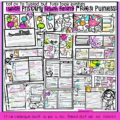Introduction to ACT Worksheets: Tools for Compassion and Growth
Acceptance and Commitment Therapy (ACT) is a powerful approach that helps individuals cultivate psychological flexibility and live more fulfilling lives. At the heart of ACT are compassion, mindfulness, and values-based action. To support this transformative work, therapists and clients can benefit from a variety of worksheets designed to deepen understanding and practice key ACT skills. In this article, we’ll explore 36 helpful ACT worksheets that can nurture wellbeing and personal growth.
Understanding the Core Processes of ACT
Before diving into specific worksheets, it’s important to understand the six core processes that ACT focuses on:
- Acceptance: Embracing thoughts and feelings without trying to change them
- Cognitive Defusion: Creating distance from unhelpful thoughts
- Being Present: Mindfully engaging with the here and now
- Self-as-Context: Connecting with a transcendent sense of self
- Values: Identifying what truly matters to you
- Committed Action: Taking steps aligned with your values
The worksheets we’ll explore touch on these processes, offering practical ways to apply ACT principles in daily life.
Exploring ACT Worksheets for Acceptance and Mindfulness
Acceptance and mindfulness are foundational skills in ACT. Here are some worksheets that can help develop these abilities:
- The Observing Self Exercise: Cultivate present-moment awareness
- Mindful Breathing Worksheet: Practice focused attention on the breath
- Acceptance of Emotions Log: Track and accept difficult feelings
- Leaves on a Stream Visualization: Let go of intrusive thoughts
- Body Scan Meditation Guide: Increase body awareness and relaxation
These worksheets offer gentle ways to build mindfulness skills and foster a more accepting stance towards inner experiences.
Worksheets for Clarifying Values and Taking Committed Action
Living a values-driven life is central to ACT. These worksheets can help individuals identify their core values and align their actions accordingly:
- Values Clarification Exercise: Discover what truly matters to you
- Life Compass Worksheet: Assess current life directions and desired changes
- Committed Action Planning Sheet: Set goals aligned with your values
- Values-Based Decision Making Guide: Make choices that honor your values
- Weekly Values Review: Reflect on how you’ve lived your values each week
By engaging with these worksheets, individuals can gain clarity on their personal values and take meaningful steps towards living in alignment with them.
Cognitive Defusion and Self-as-Context Worksheets
ACT emphasizes creating distance from unhelpful thoughts and connecting with a broader sense of self. These worksheets support those processes:
- Naming Your Stories: Identify and label recurring thought patterns
- The Observing Self Meditation: Experience thoughts as passing events
- Metaphor Creation Exercise: Develop personal metaphors for defusion
- Stepping Back from Thoughts Worksheet: Practice cognitive distancing
- Expanding Sense of Self Reflection: Connect with a transcendent self
These exercises can help individuals relate to their thoughts in new ways and experience a sense of self beyond their immediate thoughts and feelings.
Compassion-Focused ACT Worksheets
Self-compassion is a vital component of psychological flexibility. These worksheets emphasize cultivating kindness towards oneself:
- Self-Compassion Letter Writing Guide: Practice self-directed kindness
- Compassionate Body Scan: Nurture a gentle awareness of physical sensations
- Loving-Kindness Meditation Script: Develop compassion for self and others
- Self-Forgiveness Worksheet: Release self-judgment and cultivate acceptance
- Daily Acts of Self-Compassion Log: Track small acts of self-kindness
By engaging with these compassion-focused worksheets, individuals can develop a more nurturing relationship with themselves, supporting overall wellbeing and resilience.
Integrating ACT Worksheets into Daily Life
To maximize the benefits of ACT worksheets, it’s helpful to incorporate them into daily routines. Here are some suggestions:
- Set aside dedicated time each day for ACT exercises
- Keep a journal to reflect on your experiences with the worksheets
- Share insights and challenges with a therapist or trusted friend
- Celebrate small victories and moments of growth
- Be patient and compassionate with yourself as you practice new skills
Remember, the goal is not perfection but rather consistent, compassionate practice. Every moment of mindfulness or values-aligned action is a step towards greater psychological flexibility and wellbeing.
Frequently Asked Questions About ACT Worksheets
1. How often should I use ACT worksheets?
It’s best to use ACT worksheets regularly, ideally daily or a few times a week. Consistency helps reinforce the skills and principles of ACT. However, the frequency can vary based on individual needs and preferences.
2. Can I benefit from ACT worksheets without seeing a therapist?
While ACT worksheets can be valuable tools for self-reflection and growth on your own, working with a trained ACT therapist can provide additional guidance, support, and personalized strategies. If possible, it’s recommended to use worksheets in conjunction with therapy.
3. Are there any potential drawbacks to using ACT worksheets?
ACT worksheets are generally safe and beneficial. However, some exercises might bring up difficult emotions. It’s important to approach the work with self-compassion and seek support if you find certain exercises challenging or distressing.
4. How long does it take to see benefits from using ACT worksheets?
The timeline for experiencing benefits can vary greatly between individuals. Some people may notice positive changes within a few weeks of consistent practice, while for others it may take longer. Remember, personal growth is a journey, not a destination.
5. Can ACT worksheets be adapted for different age groups or specific issues?
Yes, many ACT worksheets can be adapted for various age groups and specific concerns. Therapists often modify exercises to suit the needs of children, adolescents, or individuals dealing with particular challenges. It’s always best to consult with a qualified ACT practitioner for personalized guidance.
In conclusion, ACT worksheets offer a wealth of opportunities for personal growth, increased psychological flexibility, and enhanced wellbeing. By engaging with these tools consistently and compassionately, individuals can develop valuable skills for navigating life’s challenges and living in alignment with their deepest values. Remember, the journey of self-discovery and growth is ongoing – each worksheet completed is a step towards a more fulfilling and mindful life.









